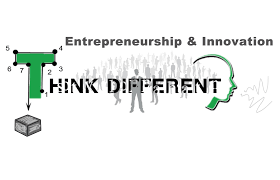DESCRIPTION
‘Cultivating the Entrepreneurial mindset in Education’ is a course that aims to teach entrepreneurship as a method that requires practice. The course is structured and geared around the five practices of entrepreneurship education, that is, play, empathy, creation, experimentation and reflection. The participants will have the opportunity to acquire in depth understanding not only of the theory related to the five practices of entrepreneurship education but also how to apply games and exercises in each one of them in order to create a stimulus learning environment. The course ‘Cultivating the Entrepreneurial mindset in Education’ is an ideal course for all those wishing to teach elements of entrepreneurship in the classroom as well as all those wishing to apply the basic building blocks of entrepreneurship in everyday life.
MAIN AIMS
- Understand the concept & the various types of entrepreneurship
- Comprehend the difference between entrepreneurship as a method in comparison with that as a process
- Comprehend the five practices of entrepreneurship education
- Learn how to teach the five practices of entrepreneurship in the classroom
- Understand the importance of both theory & practice in teaching entrepreneurship
 WHY CEME?
WHY CEME?
It is widely accepted that entrepreneurship is a critical element for the creation of job opportunities, economic growth and to provide strength to small business and academic institutions. Therefore, entrepreneurship can be categorized as investment and it is very important for a country to flourish its economy. When it comes to entrepreneurship education, most of the scholars tend to agree that entrepreneurship education must a lifelong learning process, starting as early as elementary school and progressing through all levels of education, including adult education. Using this framework, students will have: progressively more challenging educational activities; experiences that will enable them to develop the insight needed to discover and create entrepreneurial opportunities; and the expertise to successfully start and manage their own businesses to take advantage of these opportunities. There have been various studies, all of which agree that people exposed to entrepreneurship frequently express that they have more opportunity to exercise creative freedoms, higher self-esteem, and an overall greater sense of control over their own lives. As a result, many experienced business people political leaders, economists, and educators believe that fostering a robust entrepreneurial culture will maximize individual and collective economic and social success on a local, national, and global scale. When it comes to the benefits of students exposed in the framework of ‘entrepreneurship education’ these can be summarized as follows:
- Increased attendance
- Higher academic achievement
- Awareness of career and entrepreneurial options
- Acquire basic economic understanding
- Acquire basic financial concepts
- Define entrepreneurs’ contribution to society
- Use opportunity recognition/ problem solving skills
- Explore ethics issues
- Consider steps in business startup
- Evaluate ownership structures
- Translate problems into opportunities
- Apply principles of human relations management
- Apply basic accounting principles
- Engage in ethical business practices
WHO TO ATTEND?
The CEME course is ideal for:
- School principals & directors (primary & secondary)
- Teachers (primary & secondary)
- Academic staff (tertiary)
- Directors & personnel in International coordination offices (tertiary)
- Entrepreneurs & people involved in start ups (education)
- Social entrepreneurs
- Directors/managers (companies/NGOs)
- Personnel/staff responsible for the business development strategy of their organisation
- Individuals involved in start ups, networks of excellence & innovation
- Trainers (formal & non formal education)
- Individuals with interest in entrepreneurship in relationship to education
- Parents
METHODOLOGY OF THE COURSE – ADDED VALUE
The course methodology will ensure the active involvement of the participants in all phases, that is, prior, during and after the delivery of the course. More specifically, upon confirmation that the course will take place, the participants will receive preparatory material (if needed), which will cover all important concepts to be presented during the delivery of the course. The participants will have the opportunity to exchange feedback with the organiser of the course, ShipCon, and the trainer as well as to request any clarification related to the content of the course.
The methodology of the training is based on a combination of three important elements:
- Provision of knowledge required (theory)
- Use of training tools, such as case studies, videos, games, animations & exercises (practice – hands on experience)
- Feedback/reflection (review)
During the delivery of the course, the participants will receive hard copy material, which will cover the content to be presented in all five (5) days of the seminar. The material will be presented in a form of Power Point (PPT) presentations, videos & animations. Moreover, the active involvement and hands on experience of the participants will be secured through various training tools, such as case studies, worksheets, scenarios & exercises. These training tools are necessary to ensure that the theoretical knowledge gained by the participants can be used in real life scenarios; an important aspect & added value for any training course.
At the final day of the course, the participants will have the opportunity to reflect on the information received and the experience gained in the specific field of study. Moreover, the participants and their institutions will be encouraged to be members of ShipCon ‘Network of Excellence’, an international hub and forum for entrepreneurs & innovators to exchange ideas, novel concepts/approaches & best practices in the area of environment and education.
 BENEFITS TO PARTICIPANTS – SKILLS & COMPETENCES
BENEFITS TO PARTICIPANTS – SKILLS & COMPETENCES
This course provides in depth understanding of the concept of entrepreneurship and introduces the participants in the basic building blocks of entrepreneurship education both in theory as well as in practice. The course is ideal for school principals, teachers & school staff (administrative & academic), persons involved in start-ups, entrepreneurs.
By the end of the course, delegates will have acquired capabilities to:
- Understand the various types of entrepreneurship
- Teach entrepreneurship as a method that requires practice
- Comprehend in depth the theory related to the practice of play, empathy, creation, experimentation & reflection
- Acquire ability to create their own exercises for applying the five practices of entrepreneurship
The participants will:
- Comprehend in depth the concept of entrepreneurship
- Understand how they can teach the practice of ‘play’ in theory and by exercises & games
- Understand how they can teach the practice of ‘empathy’ in theory and by exercises & games
- Understand how they can teach the practice of ‘creation’ in theory and by exercises & games
- Understand how they can teach the practice of ‘experimentation’ in theory and by exercises & games
- Understand how they can teach the practice of ‘reflection’ in theory and by exercises & games
- Be able to set up their own games and exercises for applying all five practices of entrepreneurship
- Capable to create a stimulus learning environment in the classroom
CERTIFICATIONS AWARDED
- Certificate of attendance & certificate of competence (skills & competences required – Europass CV)
- Europass mobility certificates – to be issued by the applicant’s National Authority (NA)
PROGRAMME OF THE TRAINING ACTIVITIES (DAY BY DAY)
Monday
Introduction
- The concept of entrepreneurship
- Evolution of entrepreneurship
- Different types of entrepreneurship
- Entrepreneurship: method vs. practice
Tuesday
The five practices of entrepreneurship education
- Practice of play
- Practice of empathy
- Practice of creation
- Practice of experimentation
- Practice of reflection
The practice of play: the theory
The practice of play: the application
- Exercises to practice play
Wednesday
The practice of empathy: the theory
The practice of empathy: the application
- Exercises to practice ‘empathy’
The practice of creation: the theory
The practice of creation: the application
- Exercises to practice ‘creation’
Thursday
The practice of experimentation: the theory
The practice of experimentation: the application
- Exercises to practice ‘experimentation’
The practice of reflection: the theory
The practice of reflection: the application
- Exercises to practice ‘reflection’
Friday
- Parenting the future entrepreneur
- Motivate the future entrepreneur through education
- Overview of the course – reflections
Click here for relevant resources on this masterclass course
| LOCATION | DATES | STATUS | REGISTRATION |
|---|---|---|---|
| LIMASSOL - CYPRUS | 16.03.2026 - 20.03.2026 | CONFIRMED | |
| LIMASSOL - CYPRUS | 15.03.2027 - 19.03.2027 | CONFIRMED |
